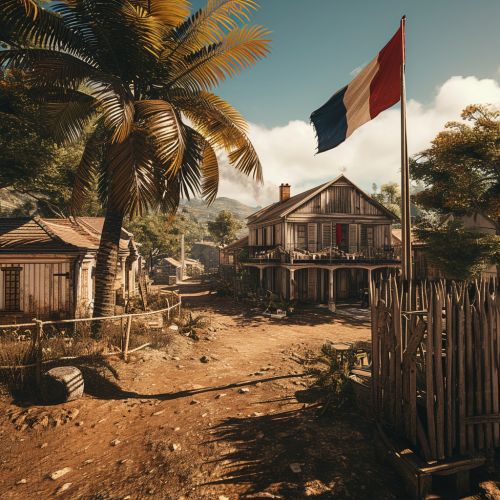French colonial empire
Origins of the French Colonial Empire
The French colonial empire began in the 17th century with the exploration and eventual colonization of the Americas and parts of Africa and Asia. The French, motivated by a desire for wealth and influenced by a sense of national and religious duty, embarked on a journey of global expansion that would last until the mid-20th century.


Establishment and Expansion
The establishment of the French colonial empire can be traced back to the reign of Louis XIV. Under his rule, France became one of the most powerful nations in Europe, and this power was used to establish and expand French colonies abroad. The French established colonies in North America, the Caribbean, and India, among other places. The French colonial empire expanded rapidly during the 17th and 18th centuries, becoming one of the largest empires in the world.
Administration and Governance
The French colonial empire was administered by a centralized system of governance. The French government appointed governors and other officials to oversee the colonies, and these officials were responsible for implementing French laws and policies. The colonies were also subject to the French legal system, and French was the official language of administration.
Economic Impact
The French colonial empire had a significant economic impact, both on the colonies themselves and on France. The colonies provided France with raw materials and a market for French goods, contributing to the wealth and prosperity of the French nation. However, the economic benefits of colonialism were not evenly distributed, and many colonized peoples suffered from exploitation and economic hardship.
Cultural Influence
The French colonial empire also had a profound cultural impact. The French language and culture were spread throughout the colonies, and many aspects of French culture, such as French literature and cuisine, became ingrained in the cultures of the colonized peoples. However, this cultural influence was often accompanied by a suppression of indigenous cultures, leading to cultural conflict and resistance.
Decolonization and Legacy
The process of decolonization began in the mid-20th century, as colonized peoples around the world began to demand independence. The French colonial empire gradually disintegrated, with most colonies gaining independence by the 1960s. However, the legacy of the French colonial empire continues to be felt today, in the form of ongoing political, economic, and cultural ties between France and its former colonies.
